My Video: Why You Need A Classical Education | With John Milton
He said the way youth are currently educated leads them to hate the concept of learning. Filling their heads with facts, figures, and ideas that are sometimes best left unlearned.
What constitutes the elements of a proper education?
That is the age old question that we all come to ask at some point. Educating oneself is a noble task to pursue and one that we should not take lightly. Milton mentions three key components that constitute a proper education. Let’s discuss these with John Milton’s Tractate.
Hello, everyone, and welcome to The Cause. Today, we are covering the 4th book in the 3rd volume of the Harvard Classics series. Which is John Milton’s “Tractate of Education”.
Tractate - Means treatise. A written work dealing formally and systematically with a subject.
This is a unique work that goes over the elements of true education for gentlemen. Now, this education is not for the faint of heart. And I do not know of anyone in my personal life who has an education anywhere close to what he describes. Although I realize it may not be practical by today's standards, I cannot help but admire individuals who can achieve this level of education while simultaneously running businesses, leading armies, and ruling nations. With no further ado… Let’s discuss the tractate.
Milton wrote the Tractate of Education to a friend named Samuel Hartlib. He was the son of a Polish merchant and an English mother and lived in London for much of his life. It appears that Mr. Hartlib had spoken with Milton about his thoughts on education and what constituted a complete and gentlemanly education in his terms. Milton seems to have taken some time to craft a concise yet detailed description of his concept of a proper education. Imagine one of the most educated poetic writers of the day providing you with a detailed letter on how to better your education and where to start with your family. I love the fact that this writing was intended for a friend, and in my opinion, it reveals what kind of friend Milton must have been. Let’s discuss his tractate and see what we can take away from his ideas.
TACTATE:
Milton opens the writing with his conviction that one should do things out of love for God and humanity. Helping out a friend and discussing important things, not for one's benefit or gain, but for the betterment of society. The concept of reformation in education is a significant one, and Milton believes it is essential to share his ideas voluntarily. Even if it is to one man seeking a better understanding of the world around him. Milton does not waste any time getting into the meat of the discussion.
“Brief I shall endeavor to be; for that which I have to say, assuredly this nation hath extreme need should be done sooner than spoken.”
So, no time to dilly dally, let’s break it down.
“The end then of learning is to repair the ruins of our first parents by regaining to know God aright, and out of that knowledge to love him, to imitate him, to be like him, as we may the nearest by possessing our souls of true virtue, which being united to the heavenly grace of faith makes up the highest perfection.”
That is one to think on. A great deal of information is packed into that line. He says most nations do not teach experience and traditions enough. Because of that, most are taught the languages and histories of the past from civilizations that are most in pursuit of wisdom and industry. He then discusses how this method has made learning unpleasant, and honestly, it has been unsuccessful. The amount of time students spend studying is not utilized well, and that will be the basis of his tractate. The order in which we learn things determines how quickly we will progress in understanding and proficiency in the subject. An example of this is beginning the students' learning experience with the arts, which are easy and most obvious to the senses. He says instead they.
“Present their young unmatriculated novices at first coming with the most intellective abstractions of logic and metaphysics;”
So they have barely started the learning process, and they are transported into a turbulent climate.
“to be tossed and turmoiled with their unbalasted wits in fathomless and unquiet deeps of controversy, do for the most part grow into hatred and contempt of learning.”
I believe most of us have experienced this at some point in our lives. Spending our prime years of youth in schools with no direction, learning things that are better left unlearned. But enough of what we should not do. Let’s see what Milton proposes. He says,
“I will point ye out the right path of a virtuous and noble education; laborious indeed at the first ascent, but else so smooth, so green, so full of goodly prospect, and melodious sounds on every side, that the harp of Orpheus was not more charming.”
That sounds like a lofty path. Maybe an overzealous yellow brick road, so to speak. Sounds good, but where does it lead? Milton says,
“I call therefore a complete and generous education that which fits a man to perform justly, skilfully and magnanimously all the offices both private and public, of peace and war.”
He expects this to be accomplished between the ages of 12 and 21. He then discusses the environment of study and the structuring of a physical space to meet his educational requirements, which he outlines. After that, we move on to the three primary focuses of education. And how he proposes to divide the day into those three parts.
1. Study 2. Exercise 3. Diet
I will break each of these down as Milton discusses.
#1 Studies:
The most in-depth part of his tractate is on studies. He says it is best to start with the rules of good grammar. And to focus on distinct and clear pronunciation. Not only the native tongue of English, but also to start with Latin, as that was a common language to know for most educated members of society back then. Next, the focus shifts to making them experts in useful points of grammar, and while completing this portion of studies, the focus needs to be on winning them early to the love of virtue and true labor. The best way to do this is by reading some helpful books on education. Whereas the Greeks have Cebes, who was a disciple of Socrates. He apparently wrote a book on cultivating virtue.
And then there is Plutarch, author of the famous “Lives” that we will cover later in the series in volume 12. So to start, he wants to focus their attention on virtues and history. He then has this great line.
“But here the main skill and groundwork will be, to temper them such lectures and explanations upon eery opportunity as may lead and draw them in willing obedience, inflamed with the study of learning, and the administration of virtue; stirred up with high hopes of living to be brave men, and worthy patriots, dear to God, and famous to all ages.”
The logic of this statement is very relatable in my own experience. I never had a passion for literature or classical works until I read David McCullough's biography of John Adams. Because of John Adams’ issues with Alexander Hamilton, I read Chernow's biography of him next. And these two men set me on a course that has led me to this point.
I was hooked, inspired, and wanted to figure out how to become more like these great men. Both are so different, yet both are well-educated, passionate, and brave in their own ways. What did they have internally that I was lacking? A wisdom that was not harnessed to just the past but could be utilized in any generation, including ours. It was beyond education, it was a character, a confidence, a passion that I was looking for. For me, the love of learning was found in the stories and lives of virtuous men from the past, whom I wanted to emulate and hold as a standard. That is why that line has a particular value for me.
Back to the students who are just starting out. Milton says that during the same day, some arithmetic and geometry can be included, and in the evening, after retiring for the night, one can read the stories of scripture. The second step in his studies gets a little more intense. At this point, the students are to venture into the authors on agriculture, such as Cato, Varro, and Columella. The subject of agriculture is relatively straightforward to understand, yet it is also crucial for a nation's survival and well being. Improving the soil and understanding agricultural practices. The students should also learn the use of the globe and maps. A fundamental knowledge of navigation early on helps you realize that planning your next destination is important in all aspects of life and then start to venture into natural philosophy.
At this point, Greek is brought up. And he prescribes this tongue to be learned in the same structure and format as Latin was. Starting with grammar and once the basics are mastered, venturing into the histories. He examines Latin writers on architecture, natural philosophy, astronomy, and geography. All this to help understand engineering and navigation. But he wants the students to look beyond just textbooks. He says,
“To set forward all the proceedings in nature and mathematics, what hinders, but that they may procure, as often as shall be needful, the helpful experiences of hunters, fowlers, fishermen, shepherds, gardeners, apothecaries, and in other sciences architects, engineers, and mariners”
I believe this is an important point. A healthy mixture of living life and experiencing events and activities is just as important as studying the greats and educating oneself with books. I recall that when I was young, my dad taught us how to hunt and skin deer, rabbits, and ducks at a very early age.
It was something I think he realized the faster he taught us, the sooner he wouldn’t have to do it anymore. But in that process, you learn more about anatomy, the connections, the textures, tissues, and the difference between animals. So when I finally got to the biology class, I had a completely different appreciation and knowledge than anyone else. The real world experiences will allow you to see where your education needs to improve and where your education may not align with reality. You can read about running a marathon all day long, but you will never know as much as the person who has actually experienced the event and finished it. Feeling the process is just as important as studying the details. Doing is just as important as studying. Also, what is the point of studying if you never go out and put into practice what you've learned?
He then moves on to the more challenging poets.
Orpheus, Hesiod, Theocritus, Aratus, Nicander, Oppian, Dionysius
And in Latin:
Lucretius, Manilius and the rural part of Virgil, which we will cover in Volume 13. He says by this time. Years of good general precepts will have distinguished them with reason and virtue.
“That they may with some judgement contemplate upon moral good and evil.”
He suggests they read through the moral works of Plato, Xenophon, Cicero, Plutarch, Laertius, and those Locrian remnants. And at night… The works of David and Solomon, and throw in the apostles as well. Allowing the works of the Bible to close out the day. He says,
“Being perfect in the knowledge of personal duty, they may then begin the study of economics.”
Only after we have instilled morals and good judgment should we teach them about money. After all these stories of powerful men of the past and a sufficient understanding of economics, it is only natural to move into the next major subject.
“The next remove must be to the study of politics; to know the beginning, end, and reasons of political societies; that they may not in a dangerous fit of the commonwealth be such poor, shaken, uncertain reeds, of such a tottering conscience, as many of our great counselors have lately shown themselves, but steadfast pillars of the state.”
This statement is more relevant and vital today than it has probably been at any time in history. That could be my decline bias speaking, but it seems we have heeded very little from the past, and that is what scares me the most sometimes.
Next on Milton’s list is law and legal justice. Societies built on social contracts have to be held together by rules that are culturally agreed upon. He mentions studying the works of Moses first, then, to be followed by the Grecian lawgivers
Lycurgus, Solon, Zaleucus, Charondas.
Then move to the Roman edicts and tables with their “Justinian”. And then to the Saxon and common laws of England. That must be some heavy reading, but I like the idea of exploring different cultures' laws to see what has worked in the past and the historical ramifications of such laws once enacted. Sundays will be dedicated to studying theology and the historical aspects of the Church. To have a better understanding, you might as well learn some Hebrew. So he throws that in. And if you really want to gain a deeper understanding of the Bible, then learning the Chaldean and Syrian dialects is also beneficial.
Now, once you have completed all of this, you can venture into the tragedies and heroic poems and enjoy the fruits of your studies a bit. This will help endow them with the spirit and vigor of Demosthenes, Cicero, Euripides, and Sophocles. Lastly, for studies, he brings up Logic, which appears to be the final destination of his educational plan.
What is left after this is to become that which you have the skills now to do. Go write, compose, speak in parliament, legislate, and make an impact on the world. For these are the studies that our noble and gentle youth ought to bestow their time in a disciplined way from the ages of 12 to 21. However, we can also start now. My Pops used to say, “No time better than the present.”
#2 Exercise
He emphasizes the importance of exercise in civilizations such as the Spartans, who trained their youth extensively for war. Milton says that an hour and a half before lunch should be dedicated to exercise. His exercises included weapons… It may be with a sword or whatever weapon of war was sufficient at the time. This process was designed to allow the youth to grow strong and confident, building up their courage. Exercise, balanced out with lectures, helps increase the patience of the student. If they were able to accomplish this, “it would make them hate the cowardice of doing wrong.” They would need to be proficient in wrestling. During resting periods, they can practice music and enjoy the harmonies of other composers. All this would help “send their minds back to study in good tune and satisfaction”
As they come of age, more war-like concepts are to be added, such as marching, horseback riding, Tactical concepts such as siege, strategies, and camping. All of this is to help them become capable commanders in the service of their country, if needed. Milton advises students that once they reach a certain level of education, they should not spend all their time indoors. Go out and explore.
“Try all their perculiar gifts of nature, and if there were any secret excellence among them, would fetch it out, and give it fair opportunity to advance itself.”
I feel this is an issue we struggle with in our modern system of learning. We keep the youth in box-shaped rooms for years and years, and then send them to college to specialize in things by sitting in more box-shaped rooms. Only then, to be cast out into the world, to realize what they truly love to do is something completely different from what they mistakenly chose out of ignorance. But once you enter the machine of our society, the longer you participate in the system. Sign up for a little mortgage, take out a loan or two, and consider insurance needs. It becomes increasingly difficult to change your situation and alter your current trajectory. If you are young, try as many skills and jobs as possible during your youth. See what you like to do before committing to a path that you may regret going down. He encourages young adults in their early 20s to visit other countries, and I love the advice he offers here.
Go out and visit other countries,
“not to learn principles but to enlarge experience, and make wise observations.”
You will find in life that you learn just as much from the evils that you witness and the bad people that stumble their way into your life as you do from the good.
The lifestyle lived by most people back then did not require the exercise that I think is needed today. We have gained more knowledge and understanding of this science now, but I feel our society does not take it as seriously as it needs to. Why accumulate all this knowledge if you are not going to take care of the hardware that operates it? Get out, walk, run, swim, cycle, and start moving.
#3 Diet
His main point on diet is moderation. Keep it simple, avoid overeating, and maintain a balanced diet. Their knowledge of food pales in comparison to what is available today, but we still choose to eat unhealthy out of laziness, convenience, and, honestly, gluttony.
He wraps it up with a great point. All of this sounds overwhelming. However, he says that once you start doing it, you will find that it is not as complicated as you thought. The hardest part of most things is taking the first step, getting off the couch, lacing up your shoes. Once you get moving and that momentum builds, the ease of life is found in the process of doing. Consistent action, compounded over weeks, months, and years, can create a person you never knew existed inside of you.
The question is, are we willing to discover that person? I have 3 personal takeaways to bring this to a modern standard.
First, I realize Times have changed. That seems to be the argument in the comment section periodically. These old texts are no longer relevant and do not accurately represent everyone's current views on society or meet the diverse cultural requirements of the times. Well… adapt them to fit your needs. Did he mean for women to go through this curriculum? Probably not. But I will be classically educating my girls, and cross-training is very important to me. Everyone will learn to hunt, garden, clean animals, and develop their mechanical knowledge. You don't have to like it, but you at least need to have the understanding and skills to use it if ever needed.
Second, I know the rigor of Milton’s plan is probably not achievable in the society we have created. Especially in our current school structure, we have set up. The amount of pushback would be intense and politicized very quickly. Sadly, the only way I can even imagine achieving anything close to this would be through homeschooling. A Memoria Press-type curriculum, coupled with a decent-sized garden, and vacations structured around education and historical places, would be a good start.
Additionally, there are numerous programs available to help you learn foreign languages for free. All you have to do is prioritize the time for it. I have used Duolingo for years and really enjoy the results from it. My personal struggle is learning all of this while teaching our kids. Milton’s tractate made me realize that our decision to homeschool is the only option we have at the moment to meet the educational requirements we desire for our kids. And everybody’s goals and circumstances are different, so I am not suggesting anyone do either.
Third, I will not debate the health and fitness standards of today compared to the generation Milton grew up in. I like the point that he included diet and fitness in regards to education, because I have always thought they go hand in hand. Personally, I find reading and expanding my mind to be beneficial. But when I pair that activity with a good, balanced diet and a very well maintained cardio routine. Those three together create a harmony that I can’t quite explain. It instills a confidence, a mindset, and a sense of fulfillment that you have to experience to understand. My advice for anyone wanting to improve in these areas is to start the marathon off walking. Every day, read one chapter, consume a healthy breakfast, and just go on a 10-minute walk. After that, the marathon has started, and you progress upward from there.
I hope you have enjoyed this overview of Milton’s Tractate of Education. You may not find it relevant for today's standards, and that is ok. We will all value and appreciate different things, which makes the world amazing.
Next week, we will discuss Religio Medici by Sir Thomas Browne, which should be a good read.
I also picked up this book, which has been recommended numerous times in the comments. We will soon cover “How to Read a Book” by Adler. This series is available in both Podcast and YouTube formats. If you prefer to listen or watch, the links are provided below.
The Cause With Rob - YouTube and Podcast
I roast specialty coffee, so if you'd like to savor some amazing coffee while perusing the pages of a classic book, then check out the link to my website, which will be available here. You can use the code “thecause” for 15% off your first order.
With that being said, read some amazing books, drink some amazing coffee. I love you all, and I look forward to seeing you next week. As always, stay blessed!
Tractate of Education - John Milton
FAVORITE BOOKS:
• The Republic: Plato
• Plato/Aristotle Starter: Arthur Herman
• Alexander Hamilton: Ron Chernow
• The Hero of Two Worlds: Mike Duncan
• Washington: A Life - Ron Chernow
FAVORITE JOURNALS:
• Writing Journals
Listen or Watch Below.


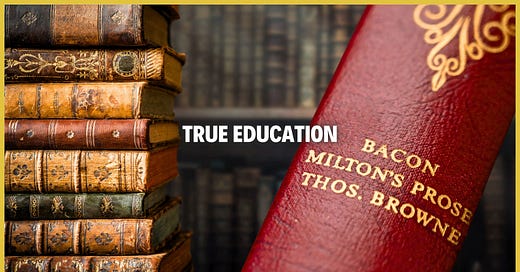



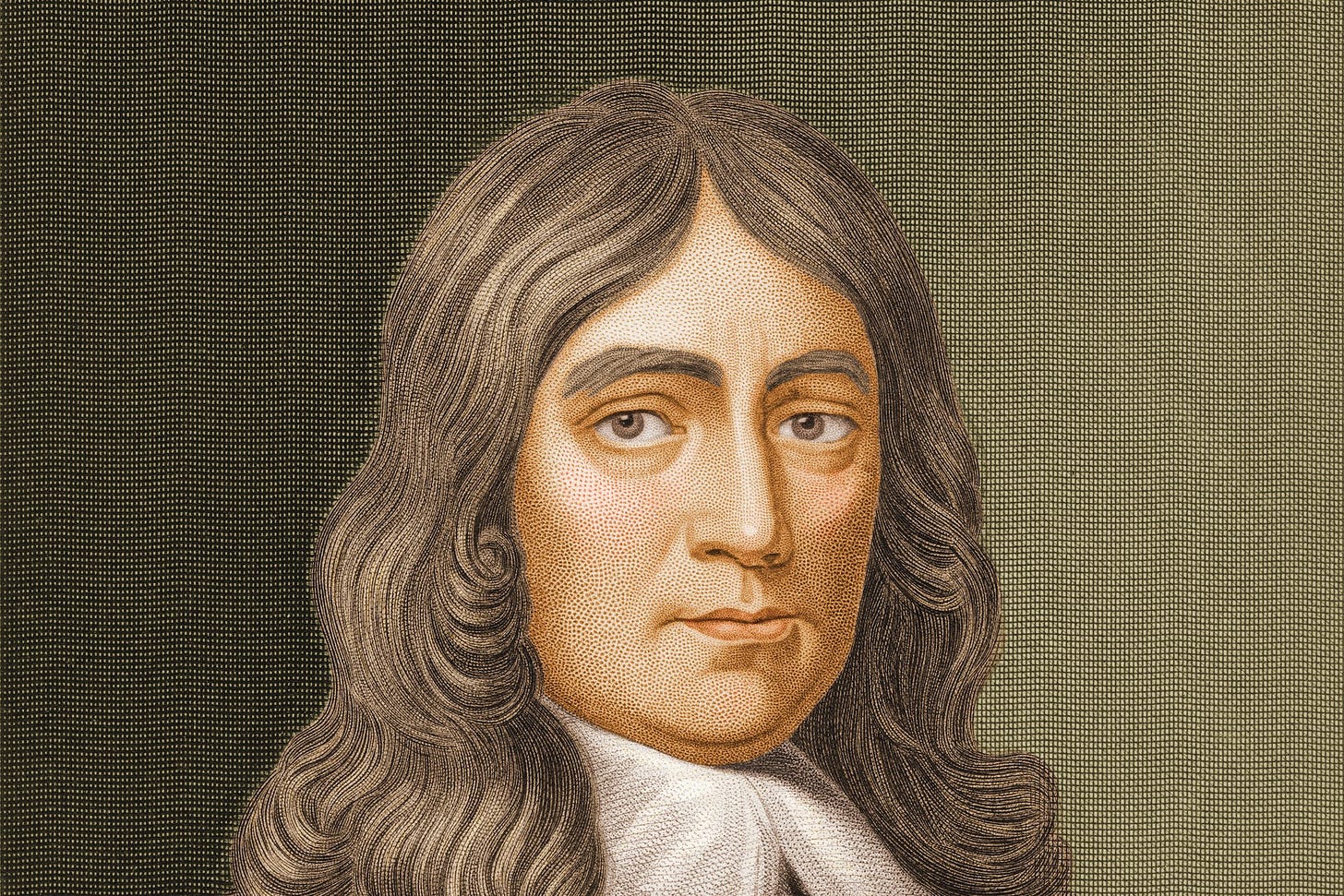
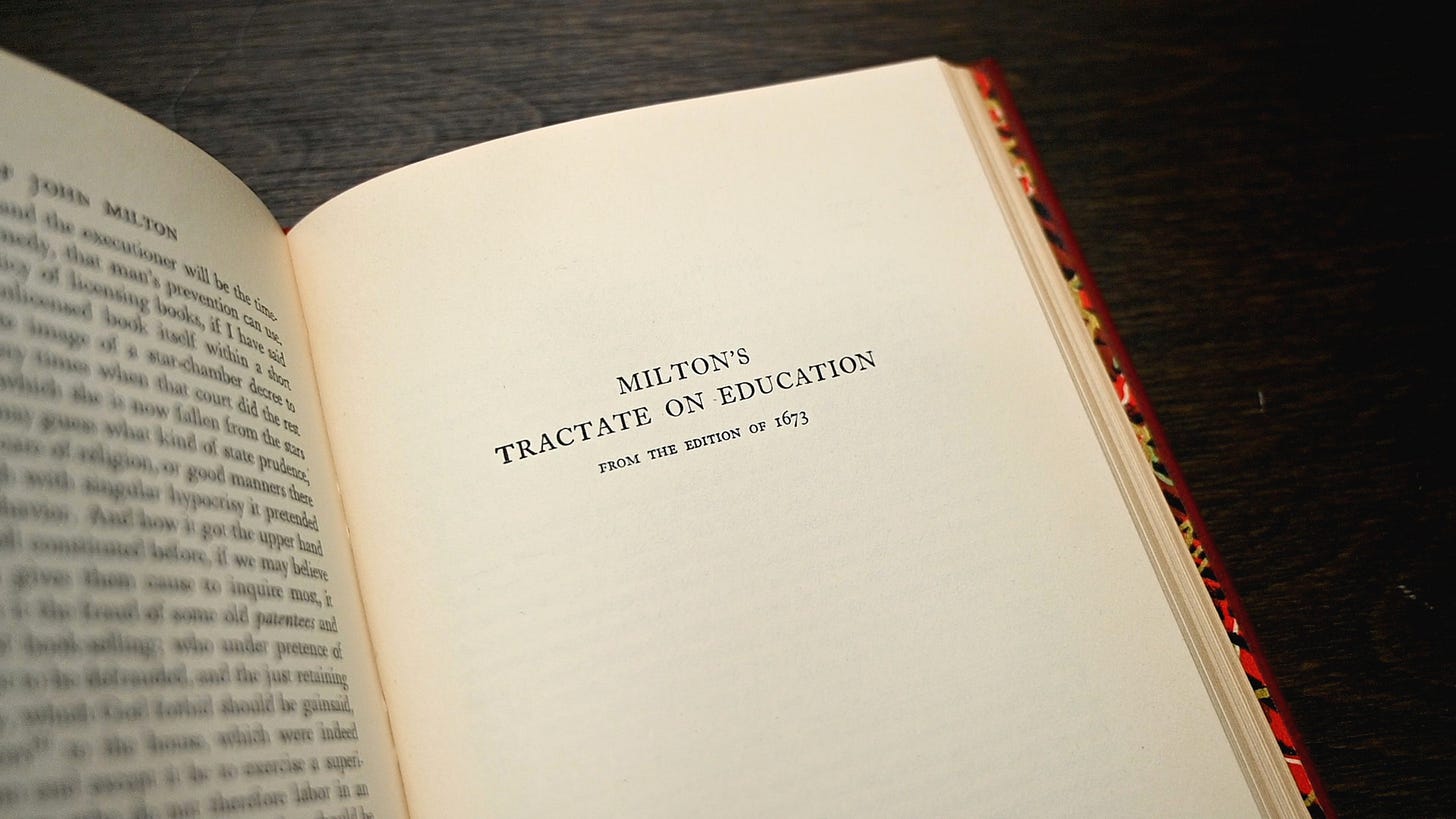
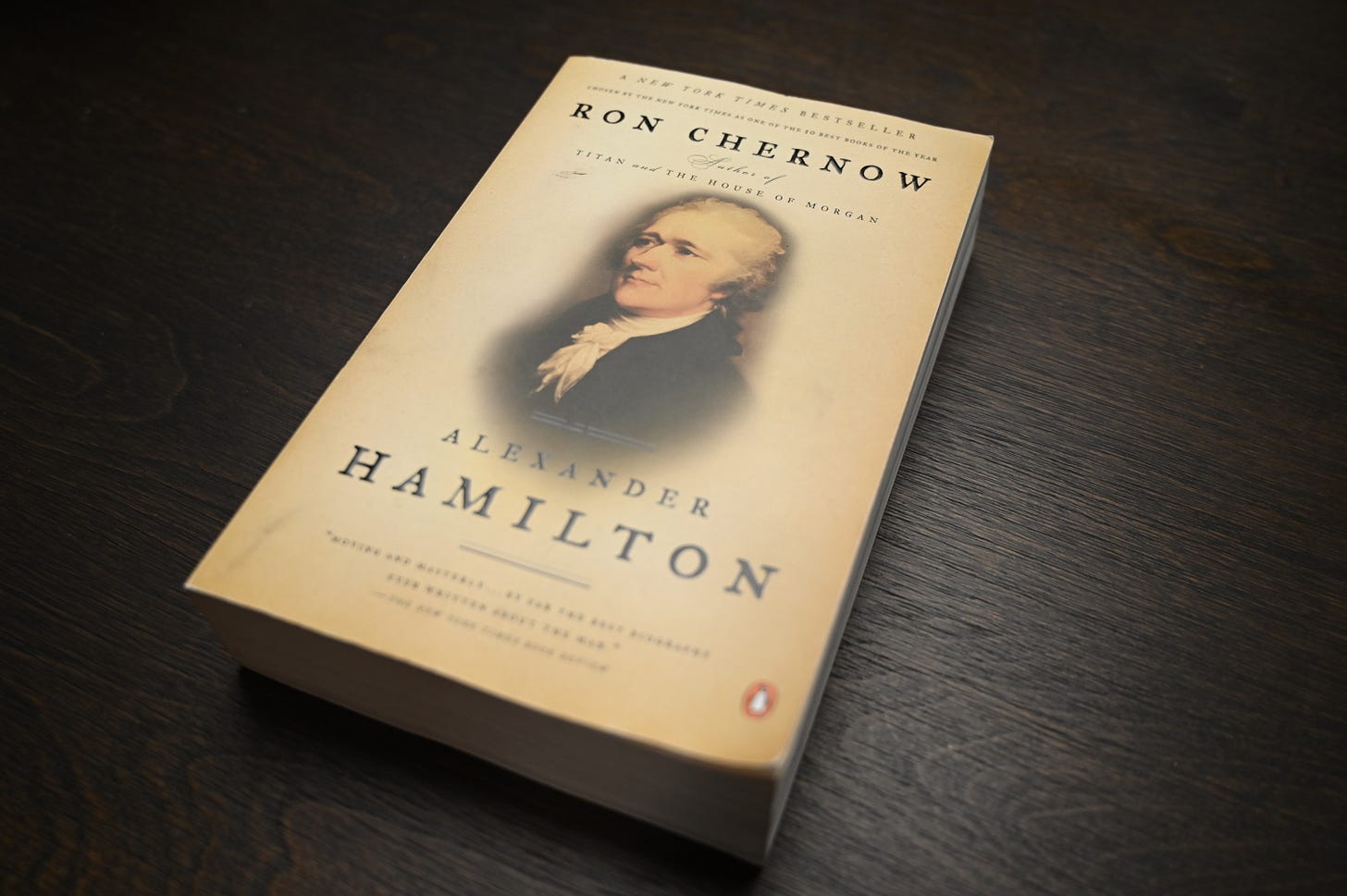
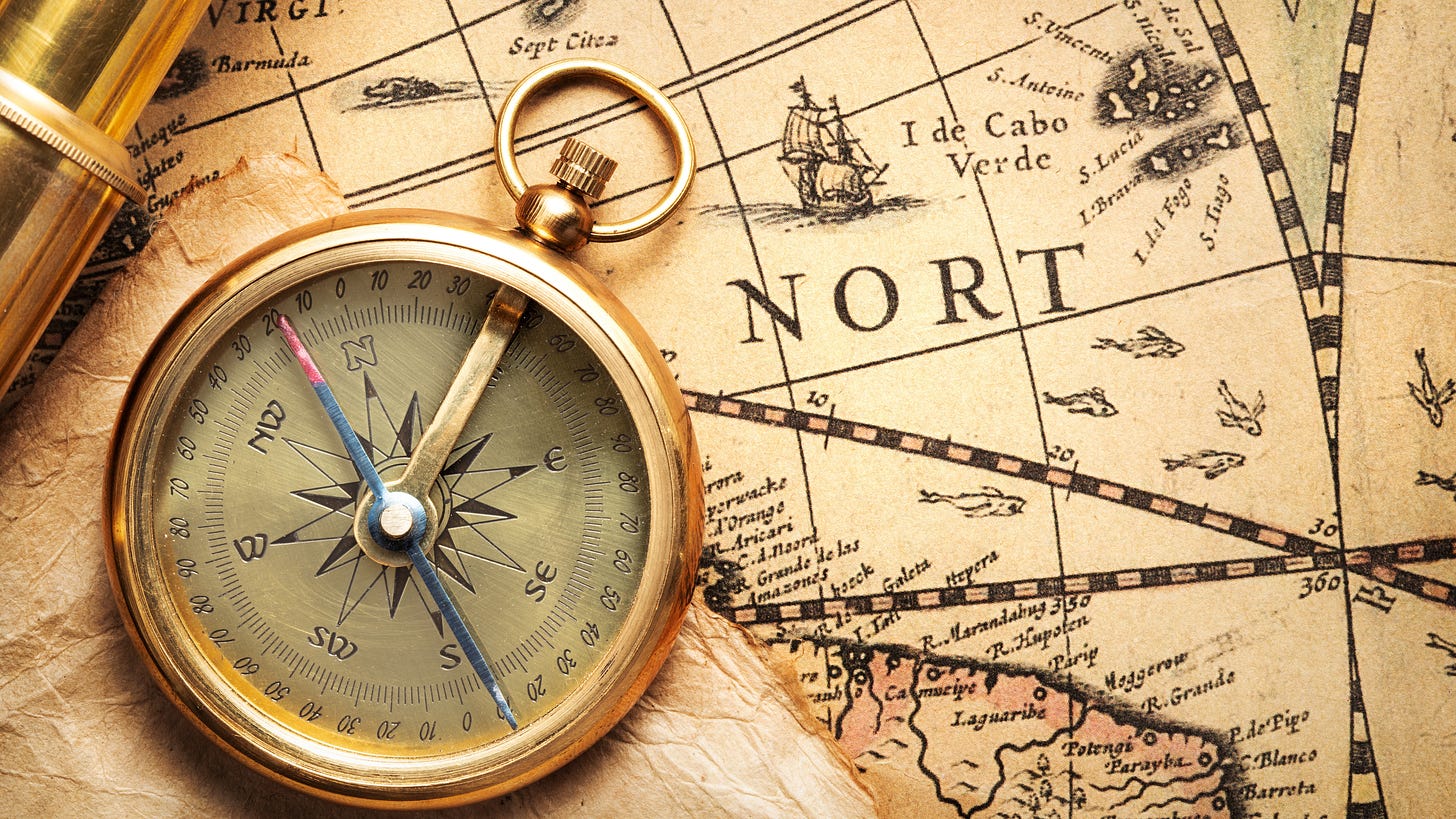
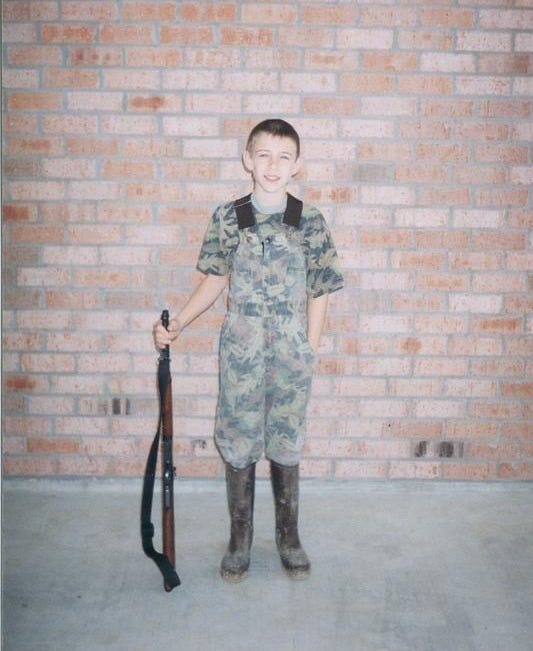


What is your opinion on John Milton's take on education? I would love to hear if you agree or disagree with him. I admit it seems like a pretty intense undertaking, and most people will not think it applicable to the current age we live in.
I’m reading Milton’s take now. Just cracked it open.